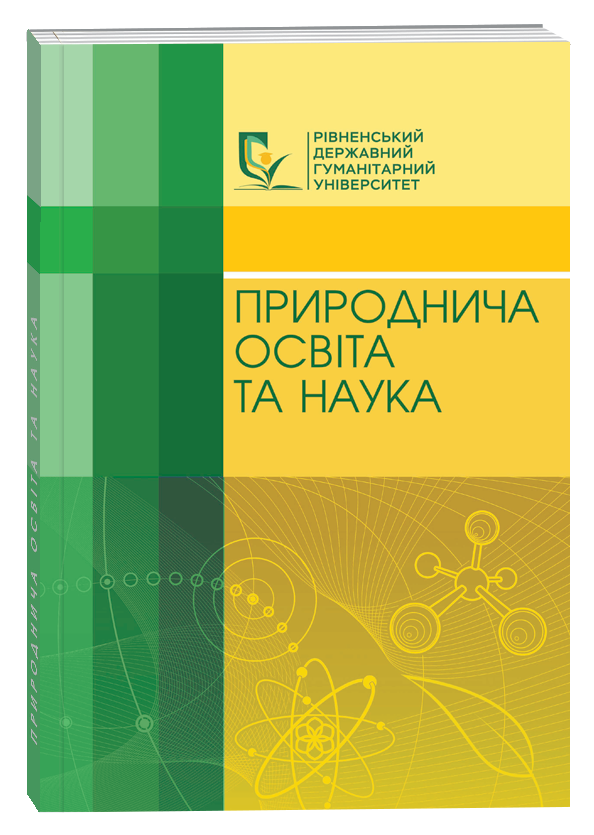THE CONCEPT OF ЗДОРОВ’Я/HEALTH IN THE ENGLISH LANGUAGE WORLDVIEW
Abstract
The article examines the concept of ЗДОРОВ’Я/HEALTH and highlights its main components. The difference between the terms health and well-being as key words of the concept is outlined. The author emphasizes that in the scientific literature there are many approaches and attempts to define and describe this concept, which leads to ambiguity in the terminology of cognitive science and, as a result, the need to clarify the terms used in each case. The author examines the concept ЗДОРОВ’Я/ HEALTH in the Ukrainian and English paremia worldviews. This concept is culture-specific, relevant to the folk mentality and belongs to the universal concepts, as it is included in the linguistic picture of any ethnic community, and, therefore, is deemed to be very important for understanding values of this community. The threecomponent structure of the concept chosen for the study allowed us to compare the conceptual, figurative and value components of the concepts, to distinguish their universal and ethno-specific features. A comparative analysis of lexicographic sources proved that when interpreting the concept in the Ukrainian linguistic picture, the emphasis is only on physical health, whereas the semantics of the concept expand in the English linguistic picture, as it includes physical, mental and spiritual well-being, without a negative impact of illness. Images and associations arise in a person’s mind on the basis of his or her individual as well as collective experience, therefore, most of the differences in the verbalization of the concept can be observed precisely in the figurative component, which turned out to be much richer and more diverse in the Ukrainian ethnic group. Thus, Ukrainians compare health with wild and domestic animals, plants, natural objects, artifacts, a strong rope, professions that require a great physical strength. The comparison of health with salt should be included into the ethno-specific images of English culture. When comparing the figurative component of the concept in compared languages, common features were also revealed, for example, a healthy person who works hard is associated with a horse in both linguistic cultures. The comparative analysis of the value component was carried out on the basis of paremia units, since they conceptualize the observations accumulated over centuries and experience of a person in his or her everyday life, act as an important means of transmitting folk wisdom and are specific to one’s culture and ethnicity. Seven thematic groups were identified which characterize the concept of health as a complex multidimensional phenomenon that includes physical, mental and spiritual health, as well as, social wellbeing. It was established that in both linguistic worldviews, health is considered to be one of the highest intangible values and occupies a prominent place in the worldview of both Ukrainian and English nations. Important for both linguistic cultures is the necessity of keeping health, maintaining a healthy lifestyle and preventing diseases.
References
2. Левченко О.П. Українсько-білорусько-болгарсько-польський словник порівнянь. Львів : Видавництво НУ «Львівська політехніка», 2011. 748 с.
3. Манакін В.М. Мова і міжкультурна комунікація : навчальний посібник. Київ : ВЦ «Академія», 2012. 288 с.
4. Милик О.В. Вербалізація концепту «здоров’я» в латинських пареміях. Мовні і концептуальні картини світу. 2013. Вип. 46 (2). С. 514–522.
5. Наколонко І.М. Концепт здоров’я та здорового способу життя у культурі й ментальності українців доіндустріального аграрного суспільства. Вісник Маріупольського державного університету. Серія «Філологія, культурологія, соціологія». 2016. Вип. 11. С. 112–124.
6. Приходько А.М. Концепти і концептосистеми в когнітивно-дискурсивній парадигмі лінгвістики. Запоріжжя : Прем’єр, 2008. 332 с.
7. Селіванова О.О. Сучасна лінгвістика : термінологічна енциклопедія. Полтава : Довкілля-К, 2006. 716 с.
8. Слухай Н.В., Снитко О.С., Вільчинська Т.П. Когнітологія та концептологія в лінгвістичному висвітленні : навчальний посібник. Київ : Видавничо-поліграфічний центр «Київський університет», 2011. 367 с.
9. Dubos R. So Human An Animal. London : Abacus, 1968. 191 p.
10. Dorlands Medical Dictionary. URL: http://www.dorlands.com.
11. Engel George L. The need for a new medical model. Washington: Science. 1977. Vol. 196. P. 129–136.
12. Longman Dictionary of English Language and Culture, 2 edition. London : Longman, 1998. 1592 p.
13. Miller-Keane. Encyclopedia & Dictionary of Medicine, Nursing & Allied Health, 7th edition / Miller-Keane, Benjamin F. Miller, Marie T. O’Toole, Marie T. (Ed.) O’Toole. Philadelphia : W.B. Saunders Company 2003. 2261 p.
14. Mosby’s Medical Dictionary, 8th edition – St. Louis, MO: Elsevier Health Sciences, 2008. 2185 p.






